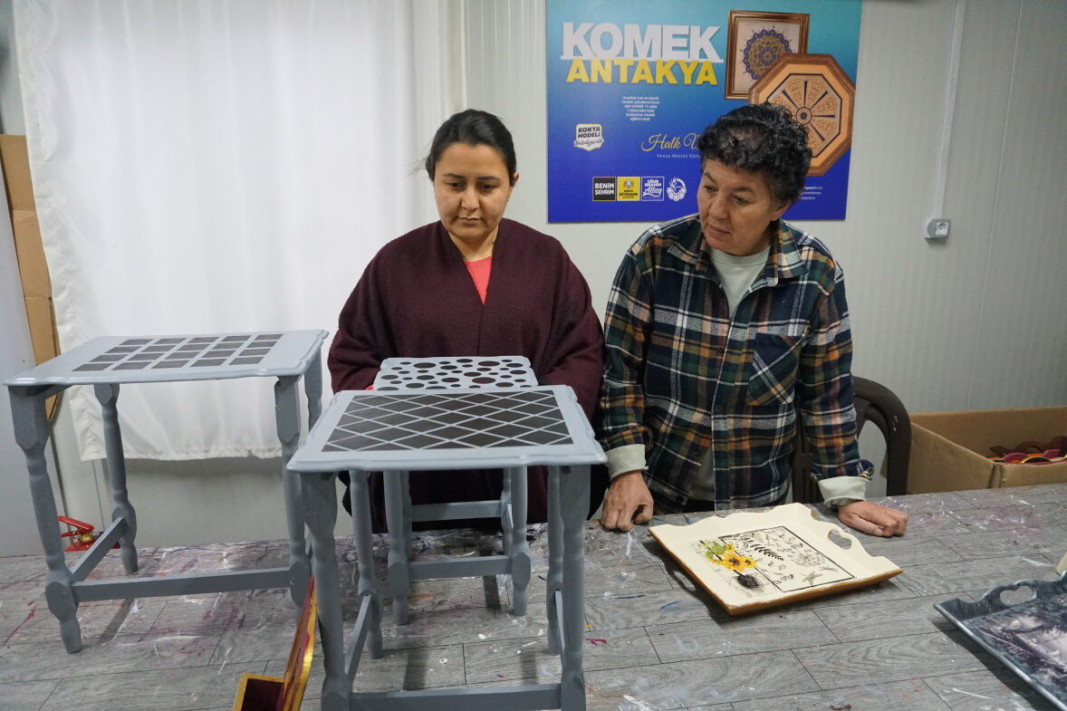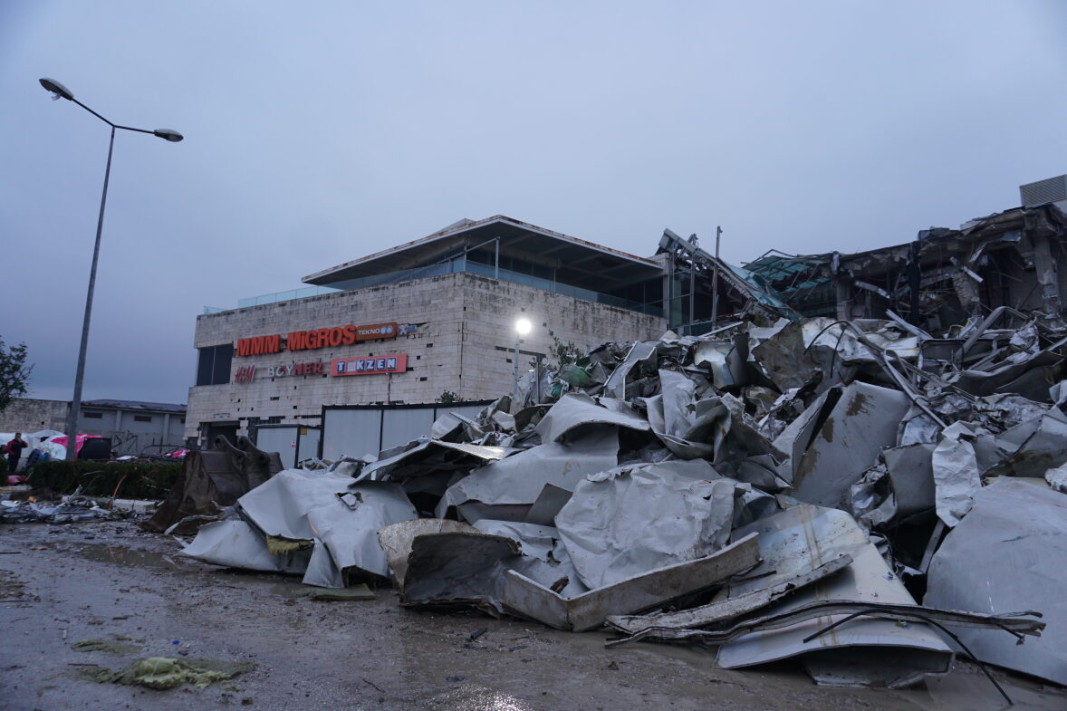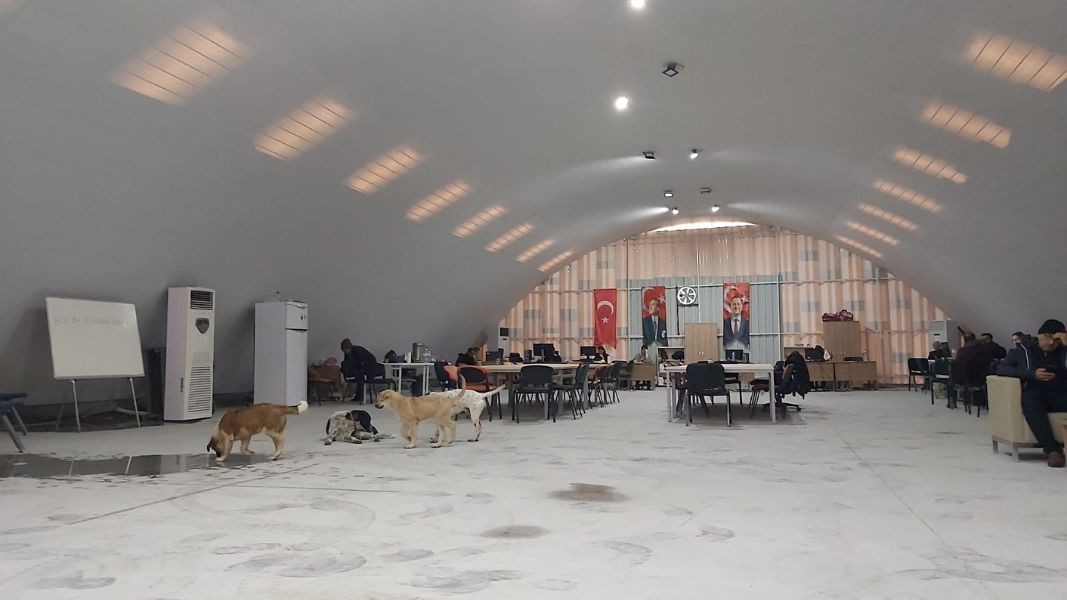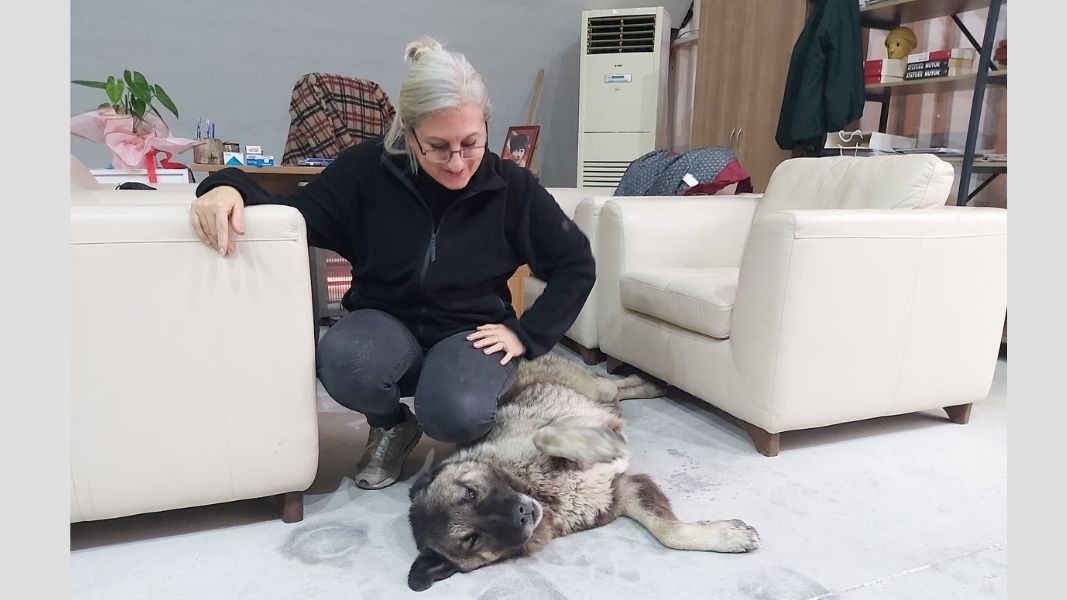We continue our story from the area in Turkey where disaster struck one year ago.
Amidst the containers there is one that is sky-blue, and there is an inscription: New hope, new life.
“There are nine different kinds of classes here – art and handicrafts, origami, sewing, cookery, fashion design. All people who come to the classes, and most of them are women, victims of the earthquake, come for psychological reasons as well. We help them, and we motivate them to learn, to obtain a certificate so they can go on with their lives and start making a living for themselves. We build up their self-esteem,” says Gulhan Yildirim, while showing us the pictures and items created by the women in her class.
Another teacher – Husne Ozer was trapped under the rubble after the earthquake for 24 hours before being found by the rescue team.
“With this friend of mine here, who was visiting, we were left under the rubble on the 7th floor. It was like in a horror movie, only it was… real.”
“The quakes came with a deafening boom. I saw the ceiling of the room open up, just like in a film. But we weren’t watching a film, we were living the destruction,” says Husne Ozer. 
Her energy is infectious, and by the end of our meeting I feel sure that the people in Hatay will overcome their problems.
“We escaped death. There is hope, of course. That is what makes us even stronger. As long as we are helping, hope never dies,” Husne says.
Caring for the animals
The bleak and dreary weather is obviously not to the liking of the group of seven large dogs following us around, and entering the hangar we are headed for together with us. Inside, the staff start feeding and petting the animals. As a matter of fact, this is not an animal shelter, it is the “Education, culture and social activities” department in Antakya.
The desks of the staff are lined up against the walls leaving the central space for two enormous tables used for the educational courses, and in between all pieces of furniture the stray dogs that followed us here are playing. The people working here are calm, and that is a normal thing, says the director of the municipal department Emine Atmaca. 
“We all love animals here. I myself have pets. Before the earthquake stray animals lived a very good life in Antakya, and in the surrounding area because they were taken care of by the people from the grocery store, by the people from the centre, from the marketplace. After the earthquake they don’t even have a balcony to shelter under. The rain is constantly pouring down, even if we give them food there is nowhere they can eat it. They have nowhere to live. So, we started taking care of one dog, now there are many.”
If you have no one, you have me – this is the belief with which journalist Sakine Altay helps the people in her home town – Hatay, and she has chosen humanity over her career. She has the unshakeable confidence that Hatay will be rebuilt, and that in the future the town will be more beautiful than it was before the earthquake.
“With this belief and motivation we are strong and we have been able to manage this difficult process. Our tears are now dried up, we chose to look ahead and to rebuild the region by common effort. We taught our children, and young people to fight because we believe that hard times make strong people! We would like to welcome all people from Bulgaria here, so they can get a sense of our spirit, and in five years’ time they can come back again to compare and see the progress we have made.”
With these words of hope by Sakine Altay, we head back to Bulgaria with a bitter taste from what we have seen, and a sense of optimism after seeing the strength and the spirit of the people who have been through “the disaster of the century”.
Translated and posted by Milena Daynova
Photos: Sevda Dukkanci, Maria Petrova
The Bulgarian minority in Romania marked a significant event with the official opening of the Bulgarian Inn in the village of Izvoarele (Hanul Bilgarilor), Teleorman County (Southern Romania)- a locality with Bulgarian roots dating back over 200 years...
The 14th edition of DiVino.Taste, Bulgaria’s leading forum for wines and winemakers, will take place from 28 to 30 November at the Inter Expo Centre in Sofia. Over 80 producers from all wine regions will participate, offering tastings of around 600 of the..
Minutes before the second and final reading, at the parliamentary budget and finance committee, of the state budget for 2026, the leader of the biggest party represented in parliament GERB Boyko Borissov halted the procedure and sent the draft bill..
The Bulgarian minority in Romania marked a significant event with the official opening of the Bulgarian Inn in the village of Izvoarele (Hanul..

+359 2 9336 661
